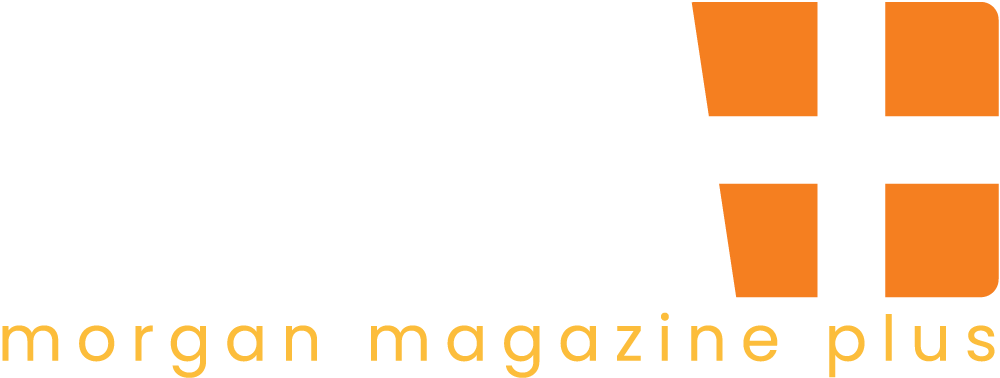By: Eric Addison
Growing up in Iran, Payam Sheikhattari faced the challenges of being a Kurd and a Sunni Muslim, an oppressed “double minority” in the predominantly Persian and Shia Muslim nation. Today, having worked in his home country then in the United States over the past three decades as a physician, medical researcher, public health administrator and public health educator, he sees parallels between the experiences of Iranians and Baltimoreans in his areas of expertise.
“I see a lot of richness in terms of the different ways of approaching community health (in Baltimore),” says Dr. Sheikhattari, who earned his Doctor of Medicine and Master of Public Health degrees in Iran and completed a postdoctoral fellowship in family health at Johns Hopkins Bloomberg School of Public Health. “There are lots of groups and programs, and they work, and they’re dedicated. They’re quite passionate about what they do. But the problem in Baltimore and everywhere else I have worked is that there are too many actors doing the same thing, and they’re not working together. They’re working in their own silos…. Another problem I have seen is a lot of community groups provide services, but not much research is involved. Research helps people collect data to make more informed decisions. It helps them evaluate the impact of their work and then build a better program. But community groups usually don’t have those kinds of capacities.”
Healthcare disparities between groups is a “huge” problem in Baltimore, Dr. Sheikhattari adds, “a kind of problem that money cannot solve. There are lots of groups of people, whether it’s African Americans or Hispanics or Native Americans or people with different sexual identities that have been historically left out because they have not been part of the mainstream. There are neighborhoods and communities that are trapped in a vicious cycle. Poverty, crime, poor education and health problems: they all feed on each other.”
The answer to these problems, he says, is “grassroots leadership. You need community involvement; 80%, 90% of the problems, any community problems you can state, whether it’s crime, obesity, HIV or anything, can be solved just by the community.”
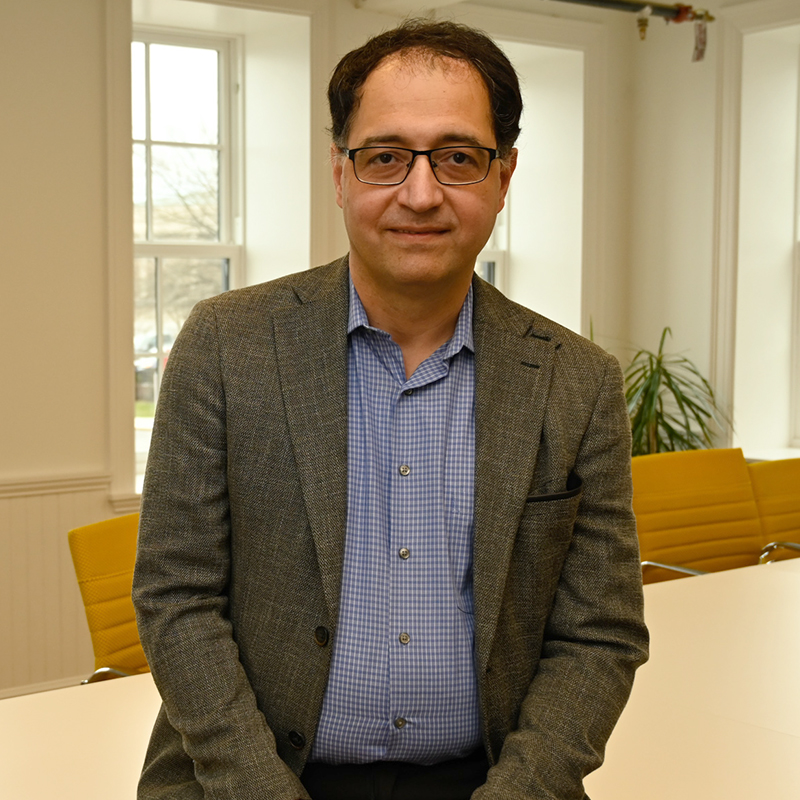
Our mission is to become like a magnet in the pipeline for bringing in community researchers and community leaders and connecting them with (Morgan) faculty….
— Payam Sheikhattari, M.D., Director, Morgan CARES
Building Bridges
Dr. Sheikhattari is a member of the faculty of Morgan State University, his workplace since 2005. He holds four job titles at MSU: professor of public health in the School of Community Health and Policy; director of the Prevention Sciences Research Center; co-director of the ASCEND center for biomedical research; and director of the Community-Aligned Research Solutions program (Morgan CARES). Morgan CARES was launched in 2019 to facilitate close, effective collaboration between community-based health organizations in Baltimore City and public health researchers and academicians at MSU. Disrupted by COVID-19 soon after its establishment, the program has marched ahead, gaining more than 360 community partners.
Morgan CARES seeks to build a bridge between people who should be connected, Dr. Sheikhattari says: “If I am a researcher in my ivory tower, and my research is not informed by the community, then my research question, my research results, everything would be irrelevant. And if I am a community member, and I am doing everything I can, but I am not doing it in a systematic, correct way, then my work wouldn’t be fully optimized or efficient. Our mission is to become like a magnet in the pipeline for bringing in community researchers and community leaders and connecting them with (Morgan) faculty in seven areas: infectious diseases; cardiovascular health; cancers and diabetes; drug addiction research; health informatics; family health; and food security.”
Morgan CARES is the community engagement core of Morgan’s federally funded Center for Urban Health Disparities Research and Innovation (RCMI@Morgan), which was established in 2019. But the program’s roots stretch back to 2007 and the launch of a smoking cessation program named Communities Engaged and Advocating for a Smoke-Free Environment (CEASE), Dr. Sheikhattari says: “We built Morgan CARES to kind of follow the model of CEASE, but not just for smoking, for every community (health) problem.”
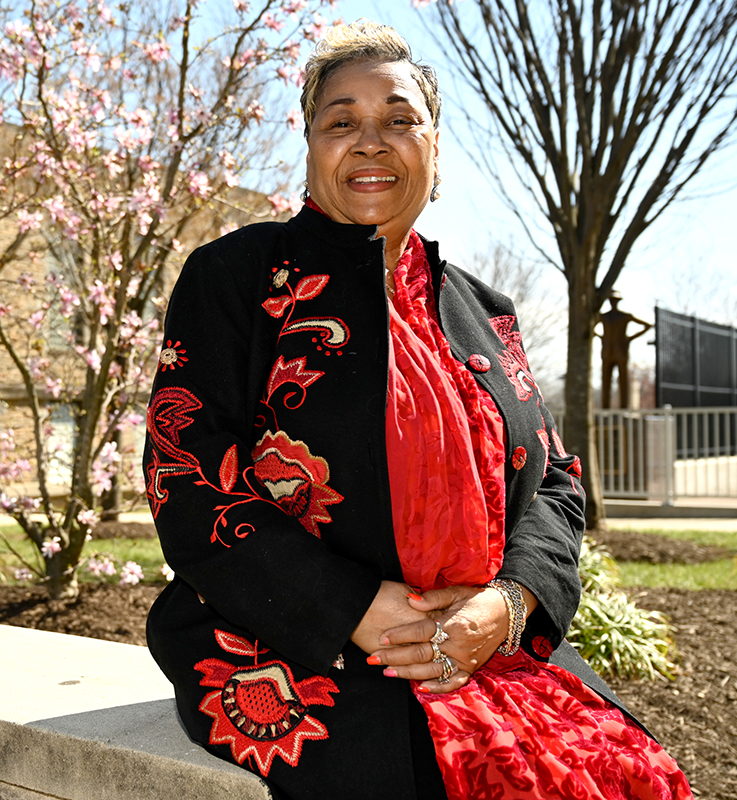
Even when the funding leaves, the relationship (with Morgan) will be there, and we can continue to build on that.
— Patricia Barger, Community Services Manager, The Family Tree
Sustaining The Family Tree
Morgan alumna Patricia Barger is community services manager for The Family Tree: a 25-year-old, statewide nonprofit based in Baltimore City, and one of the community-based organizations partnering with Morgan CARES. Morgan CARES recruited her employer and four other community groups for a project named Community Engagement Alliance (CEAL) Against COVID-19 Disparities, which is funded by the National Institutes of Health. Morgan was one of five Historically Black Colleges or Universities nationwide that received CEAL funding, a point of pride for her as an MSU graduate, says Barger, who earned her Bachelor of Science in Community Mental Health at the University in 1983.
“…Because (The Family Tree’s) mission is to eradicate child abuse and neglect, we understand that people we work with are already dealing with other social determinants (of health), like poverty, homelessness, domestic violence abuse, substance abuse. And then you’ve got COVID on top of that,” explains Barger. “If they’re already struggling, COVID just makes it more severe. It’s another burden.
“So for us to collaborate with Morgan around this issue of informing communities about COVID, and also building (public health services) capacity, just makes sense,” she adds. “I always say, ‘The people that we serve are the same people you serve.’ If you’re not serving them directly, you’re serving them through their loved ones, indirectly.”
The CEAL partners meet regularly to examine and discuss COVID issues, and the project trains “ambassadors” to go out into the community and inform people about those issues, Barger explains. The work has been successful, she adds: “We did so well with it that NIH (the National Institutes of Health) has given us a second year of funding.”
Barger says The Family Tree has taken students from Morgan as interns for many years, and she anticipates that the COVID project will lead to an even broader partnership between Morgan CARES and her employer.
“Even when the (CEAL) funding leaves, the relationship will be there,” Barger says, “and we can continue to build on that.”
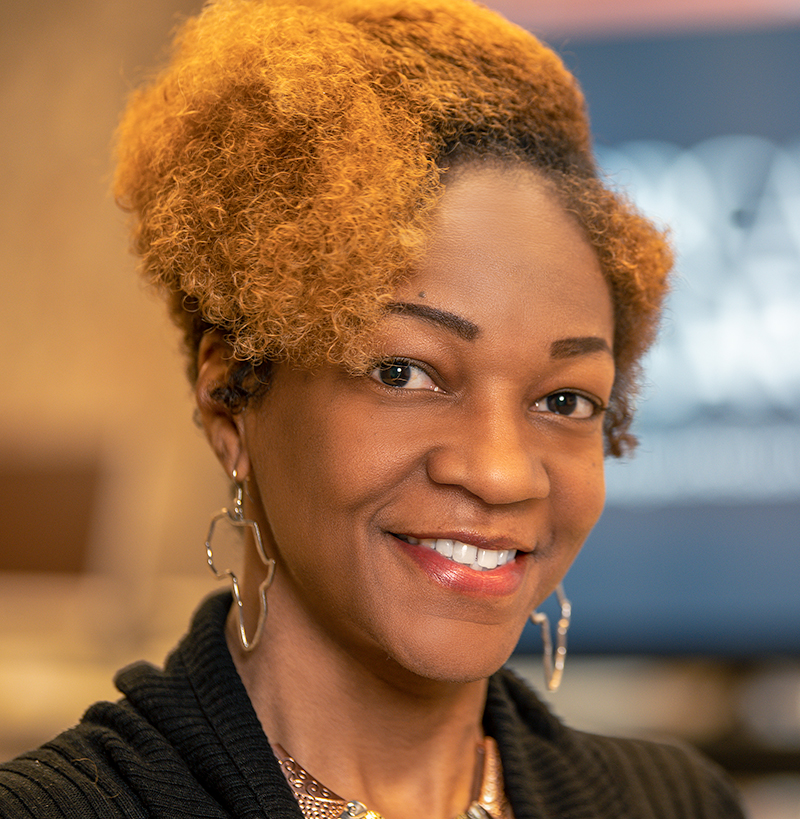
I think for me, being a resident of northeast Baltimore, it just makes sense partnering with Morgan State University, which does a lot in the northeast corridor and is an HBCU right here in my neighborhood.”
— Winifred Winston, Founder and Executive Director, Dyslexia Advocation, Inc.
Raising Awareness of Dyslexia
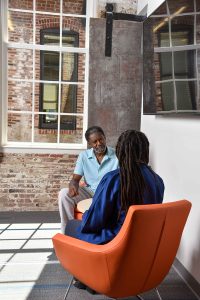 Winifred Winston decided to launch an organization in May 2020 to address a condition considered taboo by many African Americans. Her daughter had been identified as having dyslexia three years earlier. Winston had worked as a volunteer for nonprofits focused on awareness and treatment of the learning disability, had begun social media communities to create an active network of followers dedicated to addressing the topic and had taken a job as director of admissions of a private school for students with dyslexia — all to help her daughter, and children like her and their parents. Now she was ready to take the next step: forming her own nonprofit organization, Dyslexia Advocation, Inc.
Winifred Winston decided to launch an organization in May 2020 to address a condition considered taboo by many African Americans. Her daughter had been identified as having dyslexia three years earlier. Winston had worked as a volunteer for nonprofits focused on awareness and treatment of the learning disability, had begun social media communities to create an active network of followers dedicated to addressing the topic and had taken a job as director of admissions of a private school for students with dyslexia — all to help her daughter, and children like her and their parents. Now she was ready to take the next step: forming her own nonprofit organization, Dyslexia Advocation, Inc.
“Culturally, African Americans don’t discuss learning disabilities,” Winston says. “I had built a network of people who knew the ins and outs of the system of advocacy and assistance for children with dyslexia, and then I was laid off because of the pandemic. So I thought, ‘I can share this network with my people. I’m going to do a nonprofit.’ ”
Throwing herself fully into the venture, Winston won a large grant from a Johns Hopkins University accelerator program and landed other prizes or grants from Clubhouse, Ross Stores and Walmart. Then she heard, from one of the parents she was assisting, about a Morgan CARES grant program.
“I submitted in my application that I wanted to do a podcast to raise awareness about dyslexia in Baltimore City, because undiagnosed or misdiagnosed learning disability triggers mental health issues: depression, anxiety, mood disorders, self-esteem issues. And that’s how it came to fruition,” Winston recalls.
Winston recruited Simone Gibson, Ph.D., an associate professor of Teacher Education at Morgan she had connected with years earlier, to be the faculty lead for the podcast project. Dyslexia Advocation received the Morgan CARES grant in March 2021 and has produced a powerful, informative series of 17 shows for the organization’s “Black and Dyslexic Podcast,” which is geared toward Baltimore’s African-American communities.
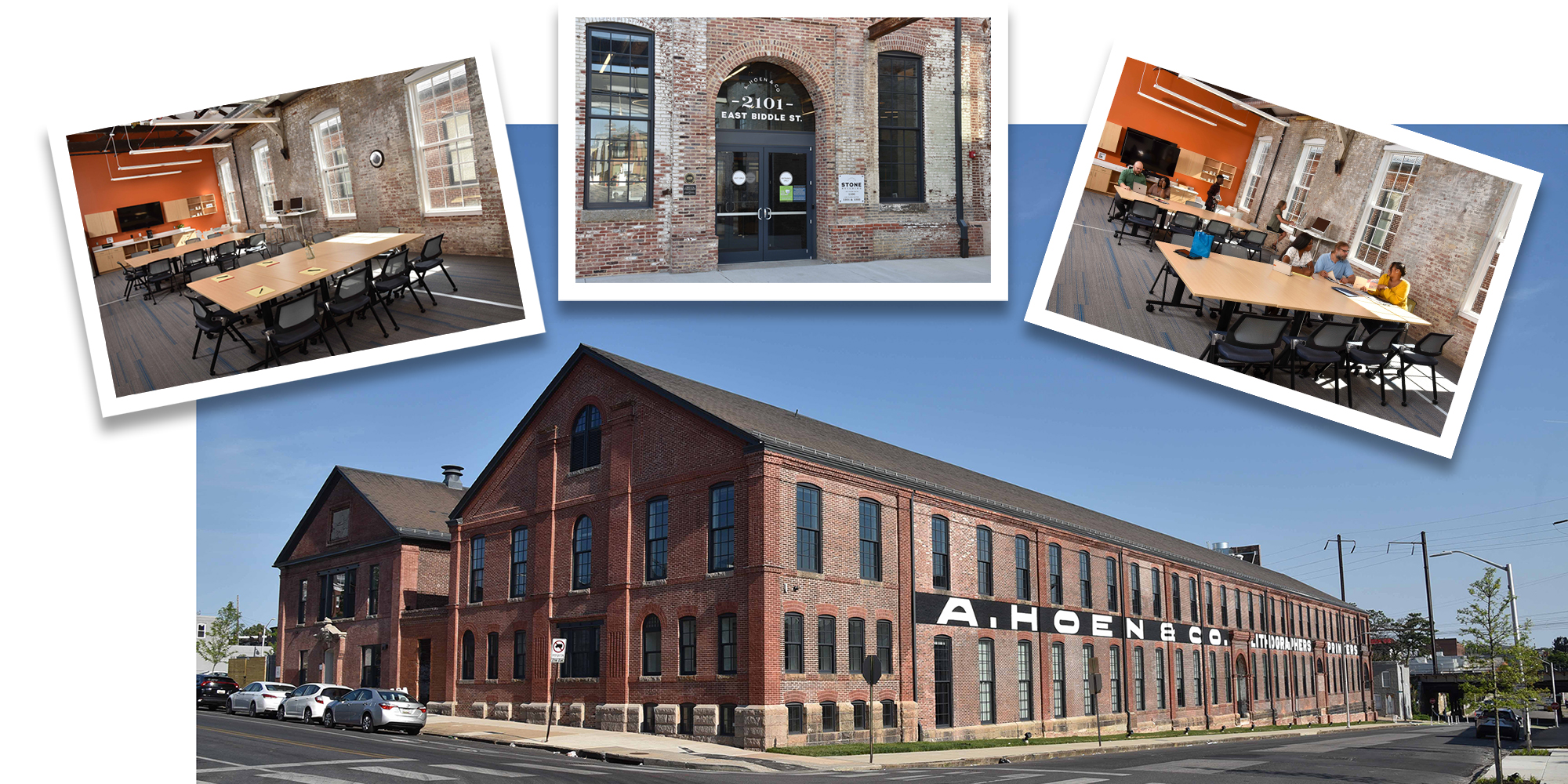
New Home, New Growth
A native of Brooklyn, New York, Winston is a former board member of the Morgan Community Mile and says she has “always had a connection to Morgan. Morgan is very popular in New York. And after I had moved to North Carolina and was about to go to college, I wanted to go to Morgan. But my mother said, ‘No, we’re not doing out of state.’ ”
“I think for me, being a resident of northeast Baltimore, it just makes sense partnering with Morgan State University, which does a lot in the northeast corridor and is an HBCU right here in my neighborhood,” Winston adds.
The Morgan CARES program reached a major milestone last December with the opening of its community center in the recently renovated Hoen & Co. Lithograph Building, in east Baltimore. Dr. Sheikhattari is pleased with the progress the program has made virtually, during the pandemic, but he anticipates greater growth now.
“We have been funded by the National Science Foundation, National Institutes of Health and also by supplemental NIH grants that have funded four programs for COVID,” he reports. “We hope that now that we are moving gradually toward a more in-person hybrid mode, we can even exceed what we have done.”
